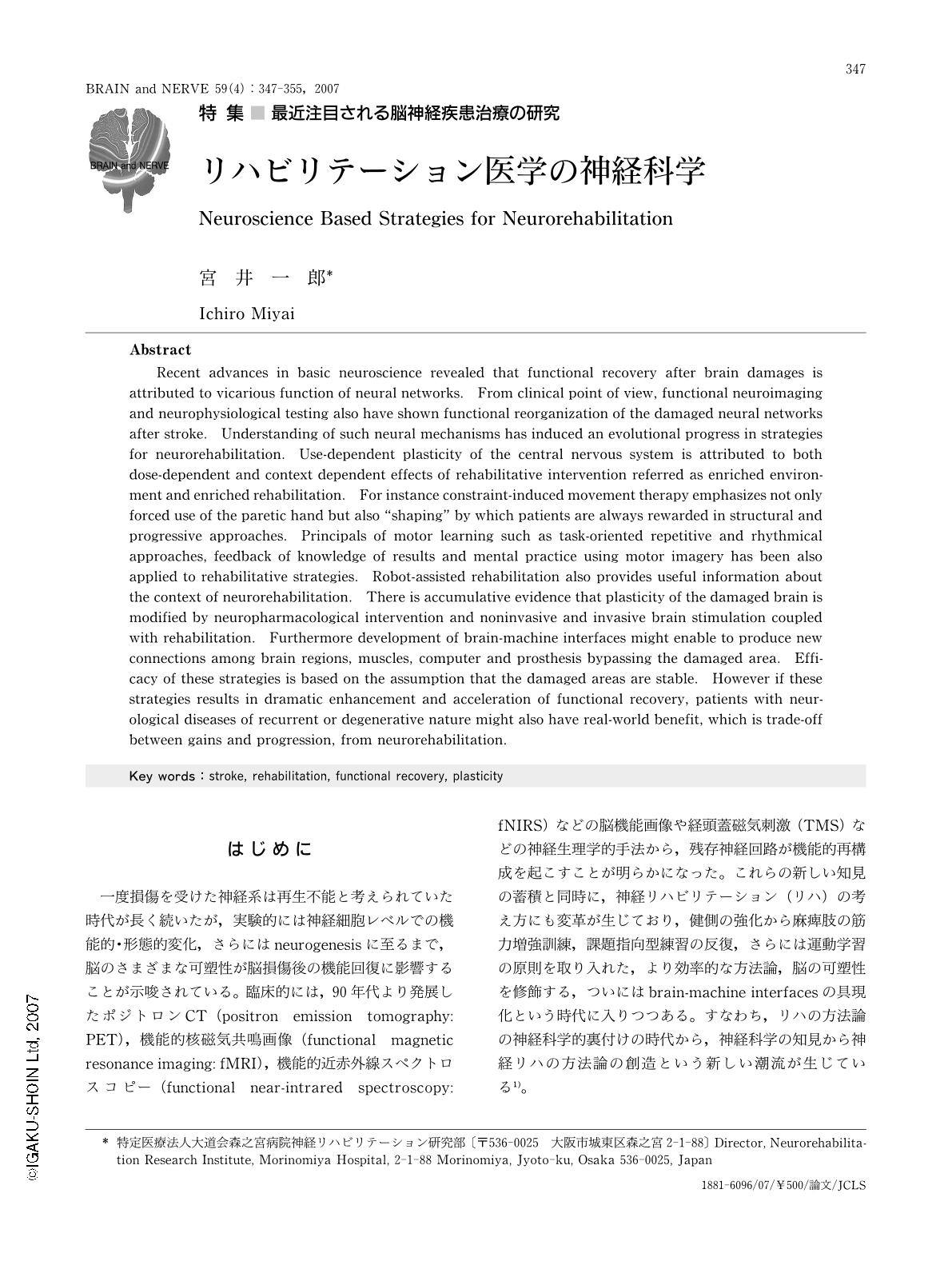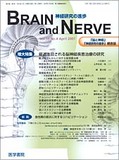Japanese
English
- 有料閲覧
- Abstract 文献概要
- 1ページ目 Look Inside
- 参考文献 Reference
はじめに
一度損傷を受けた神経系は再生不能と考えられていた時代が長く続いたが,実験的には神経細胞レベルでの機能的・形態的変化,さらにはneurogenesisに至るまで,脳のさまざまな可塑性が脳損傷後の機能回復に影響することが示唆されている。臨床的には,90年代より発展したポジトロンCT(positron emission tomography: PET),機能的核磁気共鳴画像(functional magnetic resonance imaging: fMRI),機能的近赤外線スペクトロスコピー(functional near-intrared spectroscopy: fNIRS)などの脳機能画像や経頭蓋磁気刺激(TMS)などの神経生理学的手法から,残存神経回路が機能的再構成を起こすことが明らかになった。これらの新しい知見の蓄積と同時に,神経リハビリテーション(リハ)の考え方にも変革が生じており,健側の強化から麻痺肢の筋力増強訓練,課題指向型練習の反復,さらには運動学習の原則を取り入れた,より効率的な方法論,脳の可塑性を修飾する,ついにはbrain-machine interfacesの具現化という時代に入りつつある。すなわち,リハの方法論の神経科学的裏付けの時代から,神経科学の知見から神経リハの方法論の創造という新しい潮流が生じている1)。
Abstract
Recent advances in basic neuroscience revealed that functional recovery after brain damages is attributed to vicarious function of neural networks. From clinical point of view, functional neuroimaging and neurophysiological testing also have shown functional reorganization of the damaged neural networks after stroke. Understanding of such neural mechanisms has induced an evolutional progress in strategies for neurorehabilitation. Use-dependent plasticity of the central nervous system is attributed to both dose-dependent and context dependent effects of rehabilitative intervention referred as enriched environment and enriched rehabilitation. For instance constraint-induced movement therapy emphasizes not only forced use of the paretic hand but also “shaping” by which patients are always rewarded in structural and progressive approaches. Principals of motor learning such as task-oriented repetitive and rhythmical approaches, feedback of knowledge of results and mental practice using motor imagery has been also applied to rehabilitative strategies. Robot-assisted rehabilitation also provides useful information about the context of neurorehabilitation. There is accumulative evidence that plasticity of the damaged brain is modified by neuropharmacological intervention and noninvasive and invasive brain stimulation coupled with rehabilitation. Furthermore development of brain-machine interfaces might enable to produce new connections among brain regions, muscles, computer and prosthesis bypassing the damaged area. Efficacy of these strategies is based on the assumption that the damaged areas are stable. However if these strategies results in dramatic enhancement and acceleration of functional recovery, patients with neurological diseases of recurrent or degenerative nature might also have real-world benefit, which is trade-off between gains and progression, from neurorehabilitation.

Copyright © 2007, Igaku-Shoin Ltd. All rights reserved.


